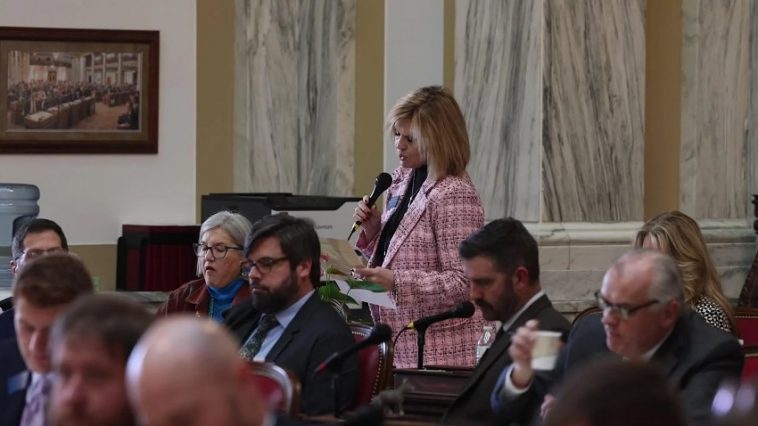Missoula, Mont. – A controversial piece of legislation, known as House Bill 121, has successfully passed a third reading in the Montana House of Representatives with a 58-42 vote. The bill, which requires individuals to use public restrooms, changing rooms, and sleeping quarters that correspond with their sex at birth, is now set to be considered by the state Senate.
Proponents of the bill, including Rep. Kerri Seekins-Crowe from Billings, argue that it is essential for the safety and privacy of women and children. “The reality is simple biological differences matter. Pretending they don’t creates confusion, discomfort, and danger,” Seekins-Crowe said in a statement. “House Bill 121 provides clarity, consistency, and peace of mind for Montanans.”
The bill is a follow-up to a similar attempt made in 2023 with House Bill 458, which was challenged and ultimately ruled unconstitutional. If passed, House Bill 121 would also seek to define sex and gender, a provision that has been at the center of heated debate.
Opponents of the legislation warn that it could cause harm to transgender individuals and lead to significant financial burdens for municipalities. Critics also argue that the bill may contribute to further division within the state.
Senate Minority Leader Pat Flowers, representing Belgrade, voiced strong opposition to the bill, suggesting that lawmakers should be prioritizing tax relief and the renewal of Medicaid, which he believes are the real concerns of Montanans. “We’re interested in tax cuts, not toilets,” Flowers stated. “It’s the end of week two and we haven’t seen proposals for tax relief or renewing Medicaid. That’s what Montanans want. We should be focusing on the state’s affordability crisis, not this divisive issue.”
Rep. Zooey Zephyr, the state’s only openly transgender legislator, also spoke out against the bill. Zephyr described the issue as one that should not be politicized, emphasizing the potential harm it could cause to the transgender community.
As House Bill 121 moves to the Senate, its future remains uncertain. The bill has already ignited passionate debate in both chambers of the legislature and is expected to face further scrutiny in the coming weeks.



